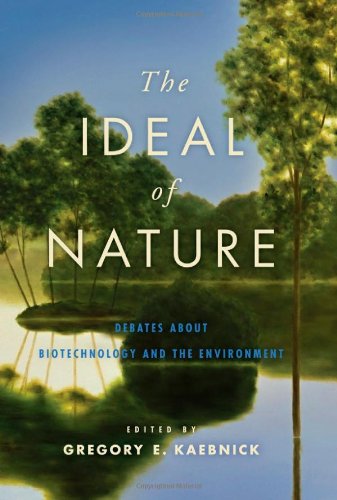The Ideal of Nature: Debates about Biotechnology and the Environment 2011
دانلود کتاب پزشکی مثال طبیعت: بحث در مورد بیوتکنولوژی و محیط زیست
| نویسنده |
Gregory E. Kaebnick |
|---|
| تعداد صفحهها |
232 |
|---|---|
| نوع فایل |
|
| حجم |
2 Mb |
| سال انتشار |
2011 |
89,000 تومان
با بازگشت حداقل به نوشتههای جان استوارت میل و ژان ژاک روسو، مردم موافق و مخالف حفظ وضعیت طبیعت استدلال کردهاند. آیا یک فضیلت ذاتی وجود دارد که یک وضعیت طبیعی را به حال خود رها کنیم، یا وقتی که ما راههایی برای بهبود شرایط خود پیدا میکنیم، نسل بشر رشد میکند؟ این کتاب به بررسی این موضوع میپردازد که آیا «طبیعت» و «طبیعی» میتوانند تاملات اخلاقی را در سیاستگذاری هدایت کنند.
این کتاب با تکیه بر فلسفه، دین، و علوم سیاسی، سه پرسش محوری برای بحث درباره مفهوم «طبیعت» در کنش انسان را بررسی میکند. از نظر مفهومی، او می پرسد که این اصطلاح به چه معناست، چگونه باید به آن نگاه کرد و آیا حتی تا حدی، یک ساختار اجتماعی است یا خیر. از منظر اخلاقی، مشارکت کنندگان این سؤال را مطرح می کنند که آیا «طبیعت» خود ارزشمند است یا اینکه ارزش آن صرفاً وسیله ای برای پیشبرد اهداف اخلاقی قابل قبول است. از نظر سیاسی، این مقالات بحث میکنند که آیا توسل به طبیعت میتواند و باید بر سیاستهای عمومی تأثیر بگذارد، و اگر چنین است، آیا آنها برگ برندههای اخلاقی هستند یا در عوض باید در کنار سایر منافع قرار گیرند یا متعادل شوند.
دستیابی به اجماع در مورد این سؤالات گریزان به نظر می رسد و به نظر می رسد راه درازی باشد. با این حال، این نباید مانعی برای پیشبرد بحث باشد. با گردآوری رویکردهای متفاوت برای پرداختن به این مفاهیم، ایدهال طبیعت امکان موقعیتهای میانی را پیشنهاد میکند که فراتر از دفاع معمول و اخراج عمومی است که در بسیاری از بحثها وجود دارد. اخلاق زیستی، فلسفه محیط زیست، مطالعات دینی، جامعه شناسی، سیاست عمومی و نظریه سیاسی شایستگی زیادی در بحث پر جنب و جوش این کتاب پیدا خواهند کرد.
Going back at least to the writings of John Stuart Mill and Jean-Jacques Rousseau, people have argued for and against maintaining a state of nature. Is there an inherent virtue in leaving alone a naturally occurring condition, or does the human species thrive when we find ways to improve our circumstances? This volume probes whether “nature” and “the natural” are capable of guiding moral deliberations in policy making.
Drawing on philosophy, religion, and political science, this book examines three questions central to debates over the idea of “nature” in human action. Conceptually, it asks what the term means, how it should be considered, and if it is, even in part, a social construct. From a moral perspective, the contributors question if being “natural” is itself of value or if its worth is only as a means to advance other morally acceptable ends. Politically, essays discuss whether appeals to nature can and should affect public policy and, if so, whether they are moral trump cards or should instead be fitted alongside or weighed against other concerns.
Achieving consensus on these questions has proven elusive and seems unattainable. This should not, however, be an obstacle to moving the debate forward. By bringing together disparate approaches to addressing these concepts, The Ideal of Nature suggests the possibility of intermediate positions that move beyond the usual full-throated defense and blanket dismissal found in much of the debate. Scholars of bioethics, environmental philosophy, religious studies, sociology, public policy, and political theory will find much merit in this book’s lively discussion.




